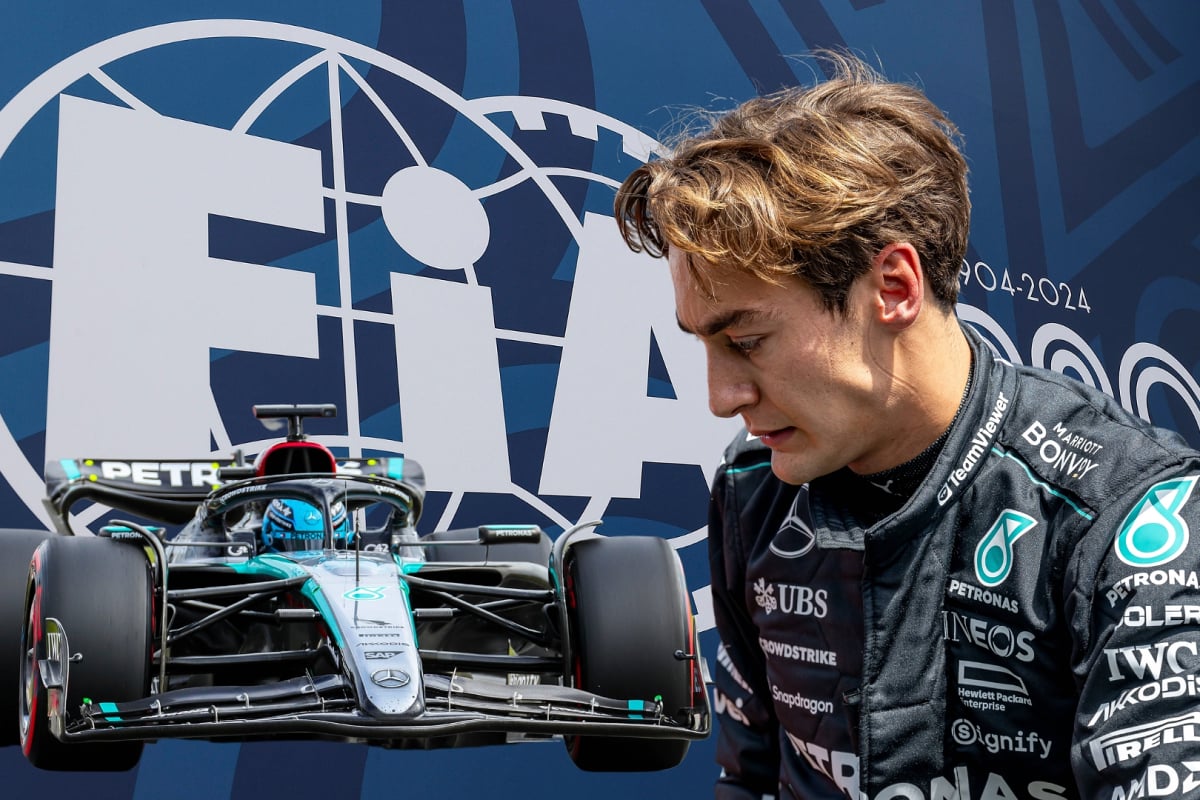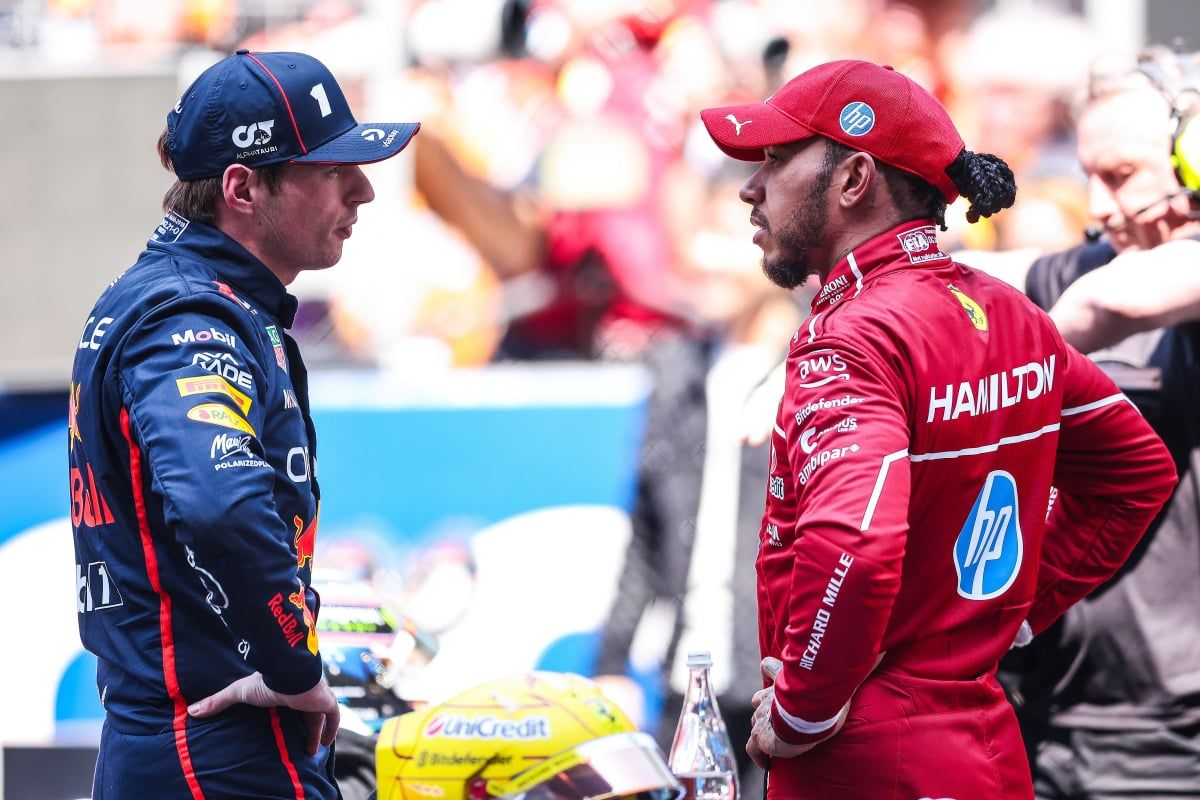Chaos in Canada: FIA Shocks F1 World with Suspension After George Russell p… read more
The Fédération Internationale de l’Automobile (FIA) concluded its investigation into an incident involving Mercedes driver George Russell during the Canadian Grand Prix’s Free Practice 2 session, resulting in a formal warning – a relatively lenient outcome considering the circumstances. Russell, who had set the fastest lap of the session with a time of 1:12.323, was summoned before the stewards for violating rule 17.3 of the event regulations. This rule stipulates that drivers leaving the track at Turn 13 or 14 must keep left of the designated orange kerb and rejoin the circuit via the run-off area at the inside of Turn 14.
Russell’s transgression occurred at Turn 14, shortly after exiting the pit lane on a new set of tires. He veered off track and, instead of adhering to the prescribed re-entry procedure, crossed the orange kerb line. Despite the infraction, the FIA determined that Russell’s actions did not provide him with any unfair advantage, nor did they compromise the safety of other drivers. This crucial detail significantly influenced the stewards’ decision.
During his explanation to the stewards, Russell admitted his mistake, attributing it to a sudden loss of control while braking, emphasizing his primary concern was avoiding a collision with the wall. The FIA accepted his account, further noting that similar infractions in previous races had not resulted in penalties. This precedent, coupled with the mitigating circumstances—Russell’s acknowledgment of his error, his cautious response aimed at avoiding a crash, and the absence of any safety hazard—led the stewards to issue only a formal warning. The FIA statement explicitly mentioned these factors, stating, “The stewards note that the driver admitted his mistake, acted with caution, and did not pose a safety risk. In light of previous precedents and the context of the incident, a warning is deemed sufficient.” The absence of fines, grid penalties, or penalty points underscored the relatively minor nature of the offense as judged by the FIA.
However, the FIA’s disciplinary actions during the Canadian Grand Prix extended beyond Russell’s incident, involving a high-profile suspension. Veteran steward Derek Warwick was removed from his duties for the remainder of the weekend following an unauthorized interview with a betting-affiliated media outlet. In this interview, Warwick made comments concerning Lewis Hamilton’s potential move to Ferrari and Max Verstappen’s penalty at the Spanish Grand Prix—issues deemed sensitive and inappropriate for a steward to publicly discuss. The FIA considered these remarks “ill-advised and in violation of internal communication protocols,” leading to Warwick’s suspension.
Warwick’s actions highlighted the importance of maintaining professional standards and adhering to internal communication protocols within the FIA. His suspension served as a clear indication that the FIA holds its officials accountable for their actions, even outside the confines of the race track. The swift action taken against Warwick demonstrated the organization’s commitment to upholding its ethical standards. Following his suspension, Warwick issued a formal apology to the FIA, and former Formula 1 driver Enrique Bernoldi temporarily filled his role, operating remotely from the FIA’s Geneva operations center. Warwick’s return is anticipated for the Austrian Grand Prix.
In conclusion, the FIA’s handling of both the Russell incident and Warwick’s suspension demonstrates a commitment to consistency in applying regulations and maintaining accountability within its organization. While Russell received a lenient warning due to mitigating circumstances, Warwick’s suspension underscored the importance of adherence to internal protocols. These contrasting yet equally significant decisions highlight the FIA’s dual focus: fair and consistent enforcement of track rules and the upholding of professional conduct amongst its officials. The events underscore the FIA’s continuous efforts to maintain fairness, consistency, and accountability within Formula 1.




